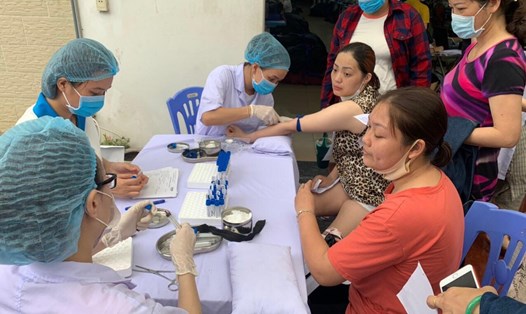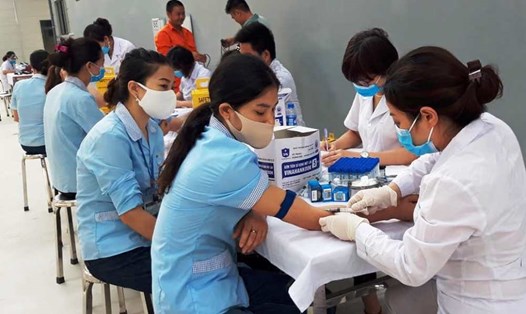1.Don't paint your nails before going to a dermatologist There are more than 3,000 skin-related diseases.
When examining, the doctor not only checks your skin but also your nails.Because fungal infections are often found in nails.Therefore, doctors need to check the natural state of the nail.Furthermore, any change in the nail can indicate diseases of other organs.
2.Don't drink alcohol before checking your cholesterol Although beer and alcohol don't have cholesterol, they contain a lot of sugar that can cause a spike in cholesterol in the body.
Doctors may get inaccurate results.
3.Should drink plenty of water before trying urine Human urine is 99% water and only 1% of acid, am ammonia, hormones and other substances are used for research.
Therefore, if you provide 100 ml of urine, only about 1 ml is suitable for disease analysis.Therefore, you should drink a few hours more water before the test to ensure you have enough urine.
4.Do not use deodorants before taking X-ray of the chest X-ray Prohibit using deodorants before taking X-ray because their ingredients contain small metal substances, which can easily confuse these metals with lime - a sign of cancer.
The results will not only be wrong but also make you worry.
5.Don't eat red foods before endoscopy Natural red foods can match the color of your colon and affect the test results.
Before doing an colon endoscopy for a week, you should not eat beetroot, blueberries, tomatoes, strawberries...Before undergoing medical procedures, you should only eat clear, liquid foods.
6.Do not eat salt before taking a blood pressure test The American Heart Association recommends consuming no more than 2,300 milligrams of salt per day.
It can contribute to high blood pressure.Therefore, before trying it, you should not eat fast food, nuts, beans or other products that contain a lot of salt.Otherwise, the result may be wrong.
7.Don't take medicine before a blood test For more accurate results, you should not take medicine before a blood test so that your blood has time to cleanse and is not affected by any external factors.
But in each specific case, it is better to discuss this issue with your doctor.
8.No changes in daily schedules The body takes a certain period of time to adapt to the new schedule.
Changing your daily schedule before going to the doctor affects different body indicators.
9.Do not use topical ointments or tampons before a gynecological examination Doctors recommend that you see a gynecologist every 3 years and should remember the following rules: Do not apply tampons for 48 hours before taking the vaginal fluid.
Do not apply cream or topical butter for 48 hours before a gynecological examination.
Do not wash your vaginal discharge for 72 hours before a gynecological examination.










